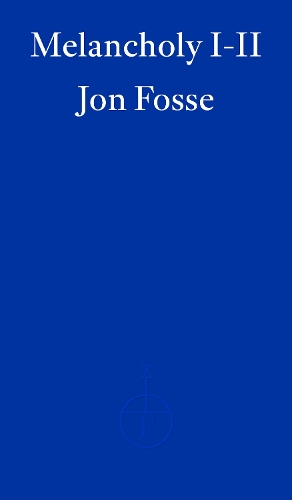
Melancholy I-II WINNER OF THE 2023 NOBEL PRIZE IN LITERATURE
(Paperback)
Available Formats
Publishing Details
Melancholy I-II WINNER OF THE 2023 NOBEL PRIZE IN LITERATURE
By (Author) Jon Fosse
Edited by Damion Searls
Fitzcarraldo Editions
Fitzcarraldo Editions
19th March 2024
1st November 2023
United Kingdom
Classifications
General
Fiction
Fiction in translation
839.8238
Winner of Nobel Prize in Literature 2023 (Sweden)
Physical Properties
Paperback
416
Width 114mm, Height 197mm
Description
Melancholy I-II is a fictional invocation of the nineteenth-century Norwegian artist Lars Hertervig, who painted luminous landscapes, suffered mental ill-ness and died poor in 1902. In this wild, feverish narrative, Jon Fosse delves into Hertervig's mind as the events of one day precipitate his mental break-down. A student of Hans Gude at the Academy of Art in Dusseldorf, Hertervig is paralyzed by anxieties about his talent and is overcome with love for Helene Winckelmann, his landlady's daughter. Marked by inspiring lyrical flights of passion and enraged sexual delusions, Hertervig's fixation on Helene persuades her family that he must leave. Oppressed by hallucinations and with nowhere to go, Hertervig shuttles between a cafe, where he endures the mock-ery of his more sophisticated classmates, and the Winckelmann's apartment, which he desperately tries to re-enter - a limbo state which leads him inex-orably into a state of madness. Published here in one volume in English for the first time, Melancholy I-II is a major novel by 'the Beckett of the twenty-first century' (Le Monde).
Reviews
Jon Fosse is a major European writer.
Karl Ove Knausgaard, author of My Struggle
Fosse has been compared to Ibsen and to Beckett, and it is easy to see his work as Ibsen stripped down to its emotional essentials. But it is much more. For one thing, it has a fierce poetic simplicity.
New York Times
Jon Fosse has managed, like few others, to carve out a literary form of his own.
Nordic Council Literary Prize
It is desperately poignantMelancholy I-IIis a difficult but deep bookIt is essential for understanding his major themes and the evolution of [Fosses] technique and artistic vision.
Rnn Hession,Irish Times
Fosse has written a strange mystical moebius strip of a novel, in which an artist struggles with faith and loneliness, and watches himself, or versions of himself, fall away into the lower depths. The social world seems distant and foggy in this profound, existential narrative.
Hari Kunzru, author ofWhite Tears(Praise forSeptology)
I hesitate to compare the experience of reading these works to the act of meditation. But that is the closest I can come to describing how something in the critical self is shed in the process of reading Fosse, only to be replaced by something more primal. A mood. An atmosphere. The sound of words moving on a page.
Ruth Margalit,New York Review of Books(Praise forSeptology)
Septologyfeels momentous.
Catherine Taylor,Guardian(Praise forSeptology)
Fosse intuitively and with great artistry conveys ... a sense of wonder at the unfathomable miracle of life, even in its bleakest and loneliest moments.
Bryan Karetnyk,Financial Times(Praise forSeptology)
The entire septet seems to take place in a state of limbo. ... Though Fosse has largely done away with punctuation altogether, opting instead for sudden line breaks, his dense, sinuous prose is never convoluted, and its effect is mesmerizing.
Johanna Elster Hanson,TLS(Praise forSeptology)
Author Bio
Damion Searls is a translator from German, Norwegian, French and Dutch, and a writer in English. He has translated nine books by Jon Fosse, including the three books of Septology.
